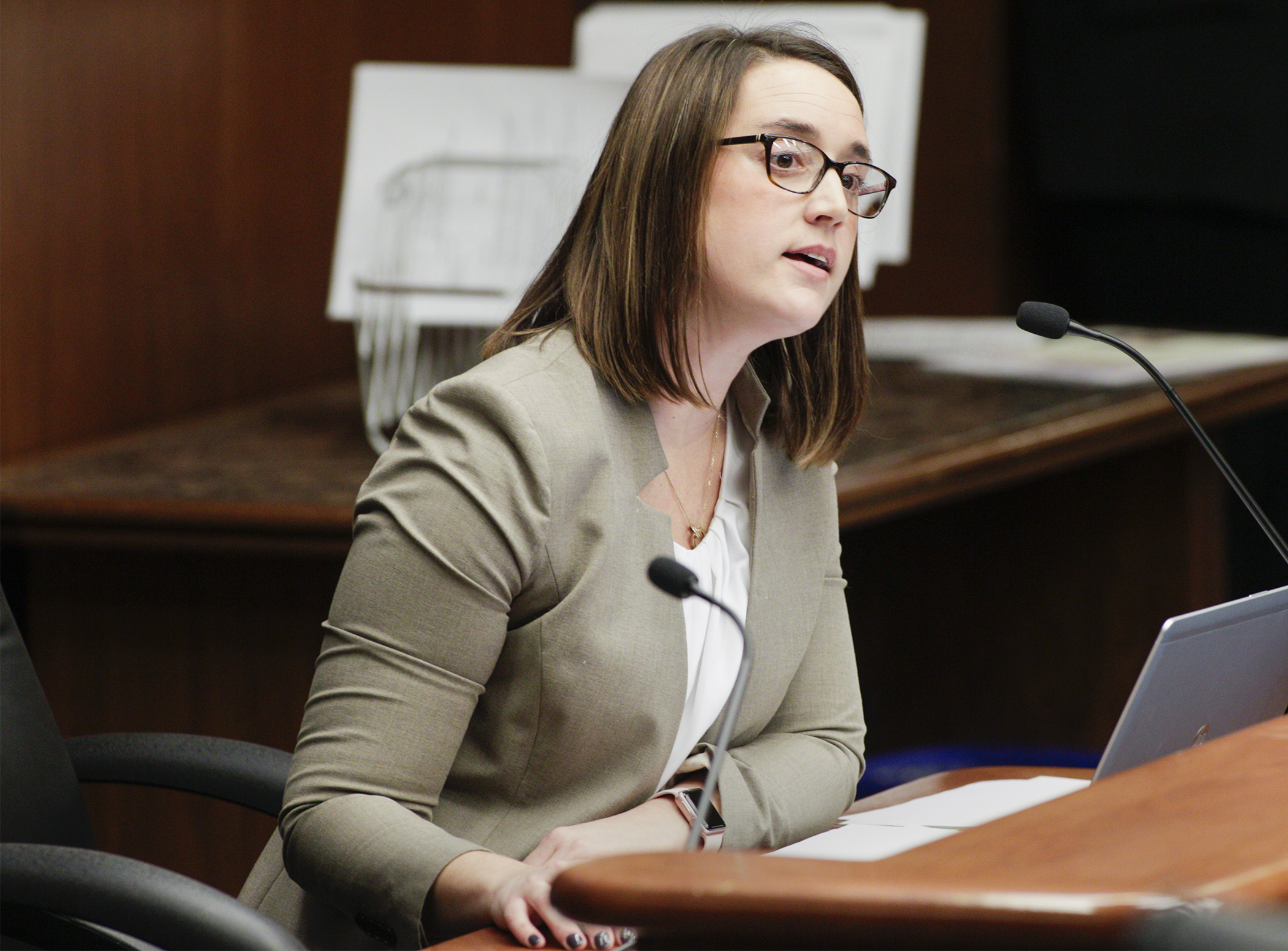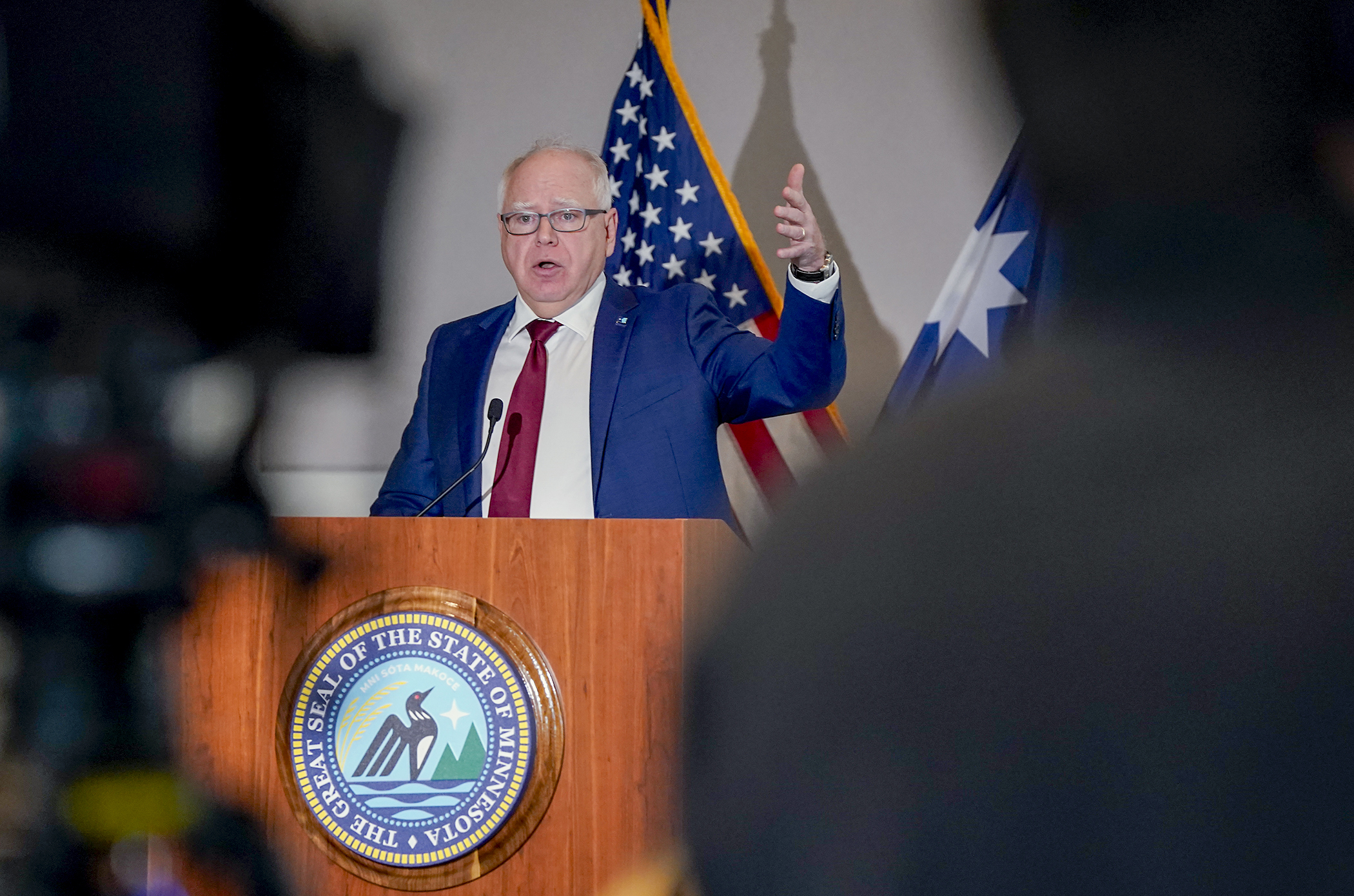House lawmakers explore better options for children with incarcerated parents

On any given day, more than 16,000 children under age 18 have a parent incarcerated in a state prison. The number is about 10,000 in county jails.
Those are just some of the numbers shared Monday at a joint hearing of the House Corrections Division and House Early Childhood Finance and Policy Division, as members seek ways to lessen the impact of incarceration on children and their parents behind bars.
“It’s a very important topic and I know we’ll be assessing it more,” said Rep. Dave Pinto (DFL-St. Paul), chair of the early childhood division. No action was taken.
Rebecca Shlafer, an assistant professor in the Department of Pediatrics at the University of Minnesota, is part of a team that conducted a study of parents in Minnesota prisons and their children. Results show the state has a higher proportion of prisoners who are parents compared to the national average. It found 77 percent of Minnesota’s female prisoners and 66 percent of male prisoners have children vs. 62 percent and 51 percent respectively across the country.
She said lots of children thrive with incarcerated parents but there are ways to increase that total.
For example, Shlafer and her team advocate that correctional law enforcement work with local agencies and non-profit organizations to better support families affected by incarceration by, in part, implementing trauma-informed arrest policies, creating re-entry programs that support the needs of the parent and providing family-friendly visiting spaces.
Bill Hutton, executive director of the Minnesota Sheriffs’ Association, said many changes could be made at county jails for little or no cost. Among them: extra visiting hours, allowing families with children to move to the front of the line for inmate visits, different paint colors in the visiting area and having children’s books available on both sides of the glass so a prisoner and their child can read together.
Parents crave physical contact with their children, Shlafer said, but jails are not set up for that.
Some counties do not permit visits until a person is sentenced, said Tonja Honsey, a leadership circle member with the Minnesota Doula Project.
A former inmate, and mother of three, Honsey said the state needs to change its focus to create a better family dynamic.
“It’s better to reimagine them in the community rather than in prison,” she said.
Honsey also said not incarcerating in the first place should be looked at.
Rep. Jack Considine (DFL-Mankato) is open to that idea. “I’d like to look at diversion prior to arrest,” said the chair of the House Corrections Division.
Non-profit and private inpatient alcohol and drug programs, such as Minnesota Adult & Teen Challenge, should also be considered, added Rep. Marion O'Neill (R-Maple Lake).
“It’s important to have support around you,” said Honsey, who went to treatment 13 times before beating her drug habit.
A Children of Incarcerated Parents Working Group was formed by the Health Department’s State Community Health Services Advisory Committee and the Minnesota Sheriffs’ Association to “assess the role of counties in preventing and mitigating the effects of parental incarceration on children.”
The group, which met eight times between May 2018 and July 2019, offered three priorities for action:
- raise awareness within county government, among professionals, elected officials and within the public;
- change attitudes to support strengthening the parent-child bond, to build resilience and reduce parental recidivism; and
- take action to build resilient children and families.
Shlafer noted that children with incarcerated parents are more likely to have poorer grades, less school engagement, decreased physical activity and overall health, have more suicide ideation and attempts, more internalizing symptoms and more disciplinary issues.
Things that promote resiliency and reduce risk are out there, she noted.
Related Articles
Search Session Daily
Advanced Search OptionsPriority Dailies
Walz proposes slimmed-down 2026-27 state budget, sales tax changes
By Tim Walker This is an odd-numbered year, and so the Legislature is constitutionally required to craft a budget to fund the state government for the next two fiscal years.
Gov. Tim Walz...
This is an odd-numbered year, and so the Legislature is constitutionally required to craft a budget to fund the state government for the next two fiscal years.
Gov. Tim Walz...
House closes 2024 session in chaotic fashion, trading bonding for budget boosts
By Rob Hubbard It was a session of modest ambitions.
After 2023 produced a record $72 billion in biennial funding, Minnesota’s legislative leaders were dampening expectations for anything ...
It was a session of modest ambitions.
After 2023 produced a record $72 billion in biennial funding, Minnesota’s legislative leaders were dampening expectations for anything ...